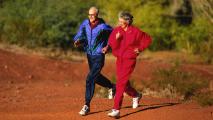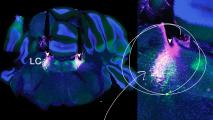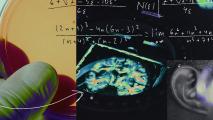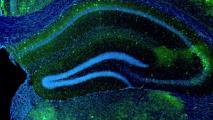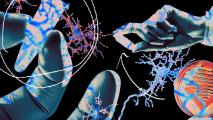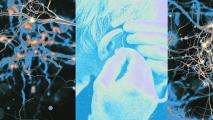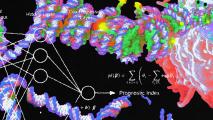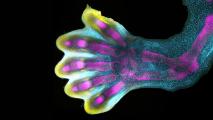
Biotech
Human history has been all but defined by death and disease, plague and pandemic. Advancements in 20th century medicine changed all of that. Now advancements in 21st century medicine promise to go even further. Could we bring about an end to disease? Reverse aging? Give hearing to the deaf and sight to the blind? The answer may be yes. And soon.
More
The most damaging exercise myth
It’s a common belief that it’s normal for adults to be less physically active as they age. This might be the most pernicious exercise myth.
New on/off switch in mRNA lets doctors “tune” gene therapy
A new kind of mRNA switch could give doctors the ability to precisely control the expression of therapeutic genes.
Research: inflammation and mortality may be caused by low “psychological well-being”
Researchers looked at the link between life purpose and mortality and found that people who felt they had no purpose in life tended to die earlier.
Your brain “wakes up” more than 100 times each night. That’s normal — and maybe good
Research suggests that brief, repeated “wake-ups” during sleep are completely normal, and may actually bode well for one’s memory.
Cyborg computer combining AI and human brain cells really works
A new biohybrid computer combining a “brain organoid” and a traditional AI was able to perform speech recognition.
Partnering up can help you grow as an individual – here’s why
The science makes it abundantly clear that couples with more self-expansion are better relationships. Here’s why.
Bioengineered protein could enhance memory
Memory-related conditions are notoriously hard to treat, but there may be a way to boost recall in the brain.
Red meat causes heart disease. Except when it doesn’t?
The problem is not scientific consensus on red meat, but how specialists analyze risk when proffering public guidelines.
Why is the value of money for happiness increasing?
While the old adage says that money can’t buy happiness, studies have determined that the more your income increases, the happier you are.
Does caffeine harm your decision-making?
A small study showed caffeine lessens decision-making. While preliminary, it raises questions about caffeine affects our “higher” cognitive functions.
Moderna’s mRNA cancer vaccine works even better than thought
Adding Moderna’s mRNA cancer vaccine to a standard melanoma treatment dramatically reduces the risk of death or recurrence.
The 5 most exciting clinical trial results of 2023
In 2023, several potentially game-changing meds, including ones to treat pain and high cholesterol, showed huge promise in human trials.
Chemobrain is real. Here’s what to expect after cancer treatment.
Chemobrain, or chemofog, can significantly affect cancer survivors’ quality of life with its social, psychological, and economic impacts.
Deep neural networks show promise as models of human hearing
In the largest study yet of deep neural networks trained to perform auditory tasks, researchers found surprising similarities to human hearing.
Professor Giles Yeo on making sense of anti-obesity drugs
Anti-obesity drugs have been in the news, and for good reason; they seem to work. Giles Yeo talks us through some misconceptions at play.
How music therapy benefits the autistic brain
While the benefits of music therapy are well known, more in-depth research explores how music benefits children with autism.
Mice could someday become venomous, suggests study on the evolution of oral venom systems
Although scientists have a good understanding of the composition of snake venom, little is understood about the origins of venom systems.
New AI predicts cancer survival using epigenetics
Researchers from the UCLA train an AI to use epigenetics to predict clinical outcomes for cancer patients.
Stunning video reveals how our fingers form in the womb
A first-of-its-kind map of human limb development could help prevent a common type of birth defect in the future.
Walmart now has mammograms, analyzed with AI
Shoppers can now get mammograms at a Walmart in Delaware — and more of the walk-in clinics are set to open in 2024.
Get inspired with the most innovative stories shaping the world around us.













